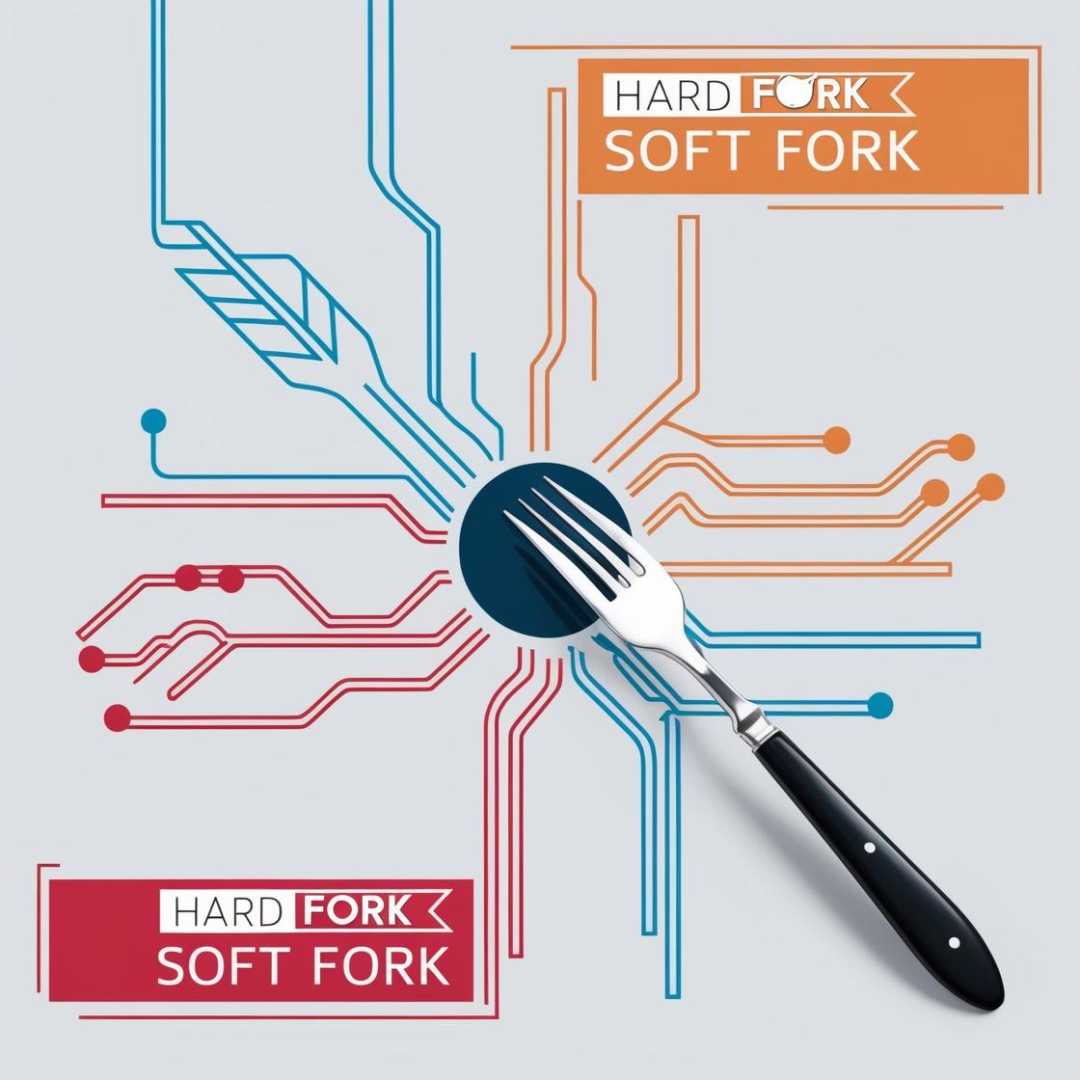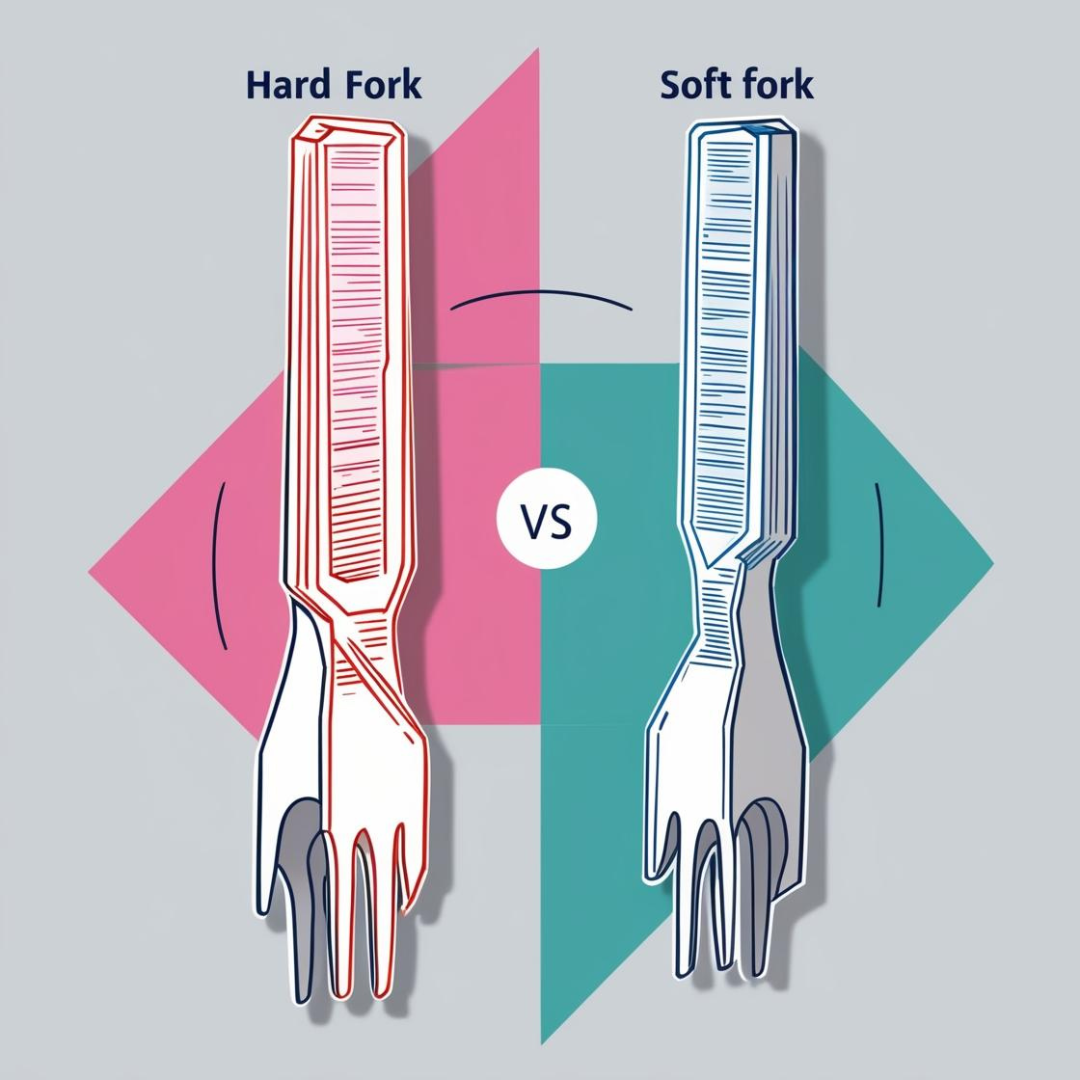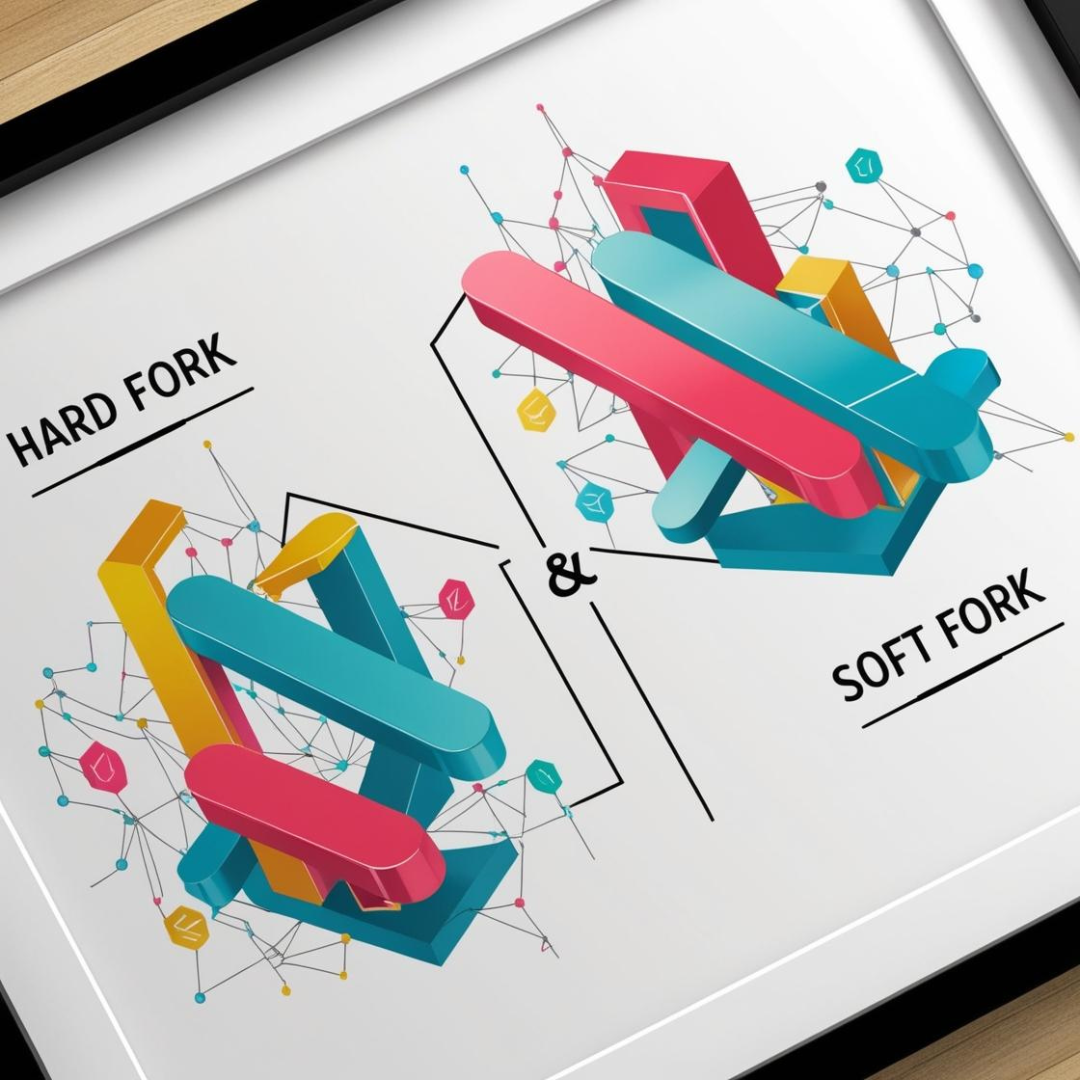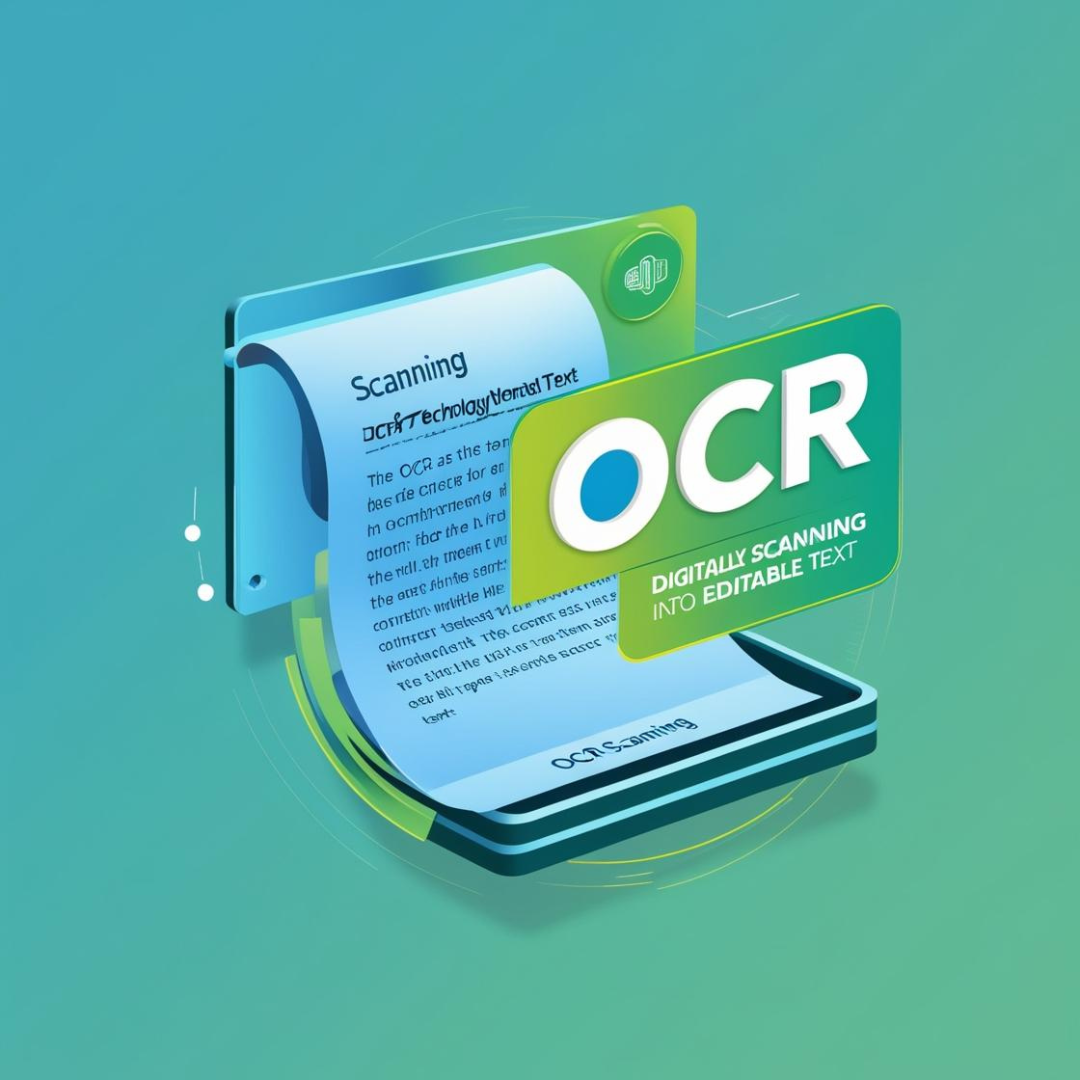Hard Forks and Soft Forks: What They Are and Why They Matter
The blockchain world is full of buzzwords, and “forks” is one you’ll hear often. But don’t worry—it has nothing to do with your dining table! Let’s break it down in simple terms.
What Is a Fork?
A fork happens when a blockchain splits into two paths. This can occur when developers, miners, or users disagree on how the network should function or when updates need to be made. Think of it as a road that divides—each path has its own direction.
Now, not all forks are the same. There are two main types: hard forks and soft forks.
Hard Forks: A Complete Split
A hard fork is like creating a completely new road from the old one. It makes big changes to the blockchain rules, and the new version isn’t compatible with the old one. To continue using the new version, everyone (miners, developers, and users) must upgrade to the updated rules.
Example of a Hard Fork
Bitcoin and Bitcoin Cash are a famous example. In 2017, some people in the Bitcoin community wanted to make transactions faster by increasing the block size. Others disagreed. So, the blockchain split, creating Bitcoin Cash as a new, independent cryptocurrency.
Why It’s Important
Hard forks are like starting fresh. They’re used to add new features, fix major issues, or address disagreements in the community. But they can also create competition between the two versions of the blockchain.
Soft Forks: A Minor Upgrade
A soft fork is like a minor tweak to the existing road. It changes the rules of the blockchain but stays compatible with the older version. Users and miners can continue using the blockchain even if they don’t upgrade, but they won’t benefit from the new features.
Example of a Soft Fork
SegWit (Segregated Witness) is a well-known soft fork on Bitcoin. It was introduced to improve transaction efficiency without breaking compatibility with older versions of the blockchain.
Why It’s Important
Soft forks are less disruptive than hard forks. They allow blockchains to evolve without splitting the community or creating new cryptocurrencies.
Key Differences Between Hard Forks and Soft Forks
Let’s compare the two in simple terms:
Compatibility: Hard forks are not compatible with the old blockchain, while soft forks are.
Blockchain Split: Hard forks create a completely new blockchain, but soft forks keep the blockchain intact.
Examples: Hard forks include Bitcoin Cash and Ethereum Classic, while soft forks include SegWit and Taproot.
Use Case: Hard forks are for major changes or disagreements, while soft forks focus on minor upgrades and improvements.
Why Forks Matter
Forks are essential for blockchain growth and evolution. They allow blockchains to:
Fix problems (like bugs or scalability issues)
Introduce new features
Reflect community decisions
However, they also come with challenges. Hard forks can divide communities, and soft forks may leave some users behind if they don’t upgrade.
How to Stay Informed About Forks
If you’re investing or using cryptocurrencies, it’s essential to stay informed about upcoming forks. Here’s how:
Follow blockchain project updates—major changes are usually announced in advance.
Understand the impact—will it create a new coin or just improve the existing one?
Secure your funds—ensure your wallet or exchange supports the new rules to avoid losing access.
Hard forks and soft forks are vital tools for improving blockchains and adapting to new challenges. Whether it’s a complete split or a minor tweak, forks shape the future of cryptocurrencies and blockchain technology.
Understanding forks not only makes you a smarter investor but also helps you appreciate the flexibility and innovation behind blockchain. So next time someone talks about a fork, you’ll know exactly what they mean!













